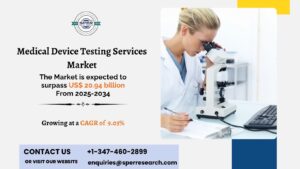Europe Shipping Container Market Trends and Analysis 2033

A shipping container is a large, uniform, and robust metal box that is used for long-distance rail, land, or marine transportation. These containers, which are made mostly of steel, are made to resist rigorous handling and extreme climatic conditions. The most prevalent choices for transporting cargo are the 20-foot and 40-foot containers, favored for their optimal capacity and ease of handling across international logistics networks. Global trade has been transformed by shipping containers, which make it possible to transfer cargo in an economical, safe, and effective manner. Easy stacking and interoperability with several modes of transportation are made possible by their homogeneous design. In addition to transportation, old containers are recycled for housing, building, and storage, providing flexible and environmentally friendly infrastructure options all over the world.
According to SPER Market Research, “Europe Shipping Container Market Size- By Type, By Size- Regional Outlook, Competitive Strategies and Segment Forecast to 2033” states that Europe Shipping Container Market is estimated to reach XX USD billion by 2033 with a CAGR of 2.3%.
Drivers:
The fast expansion of international trade and the rising need for effective cargo transportation are the main factors propelling the shipping container industry. The growth of global supply chains and e-commerce has increased the volume of containerized freight. Container utilization has increased even more as a result of improvements in intermodal transportation systems and infrastructure, such as ports, railroads, and roads. More companies are investing in containerized transportation as a result of the growing use of smart containers with GPS and IoT technologies, which improves cargo tracking and security. Furthermore, a major factor driving market expansion is the rising need for specialized, refrigerated containers for the transportation of delicate and perishable commodities. The continued demand for containers worldwide is also supported by their growing usage in modular construction.
Europe Shipping Container Market Sample in PDF Format, Click Here
Restraints:
Geopolitical tensions, supply chain interruptions, and variations in international commerce brought on by economic uncertainty are some of the difficulties facing the shipping container business. Small firms may be put off by the high upfront and ongoing expenditures of containers, particularly specialized ones like refrigerated units. Delays and higher freight prices are frequently caused by port congestion, a shortage of available containers, and imbalances in the distribution of containers. Challenges are also presented by environmental issues with old or discarded containers as well as the carbon emissions from container transportation. In addition, the market faces challenges from customs processes, different international standards, and complicated regulations. Global containerized shipping operations are further hampered by rising fuel prices and inadequate infrastructure in emerging nations.
Netherlands held the biggest revenue share in the Europe Shipping Container Market. Strong manufacturing bases, a vast multimodal transportation network that includes important ports and interior rivers, and a large concentration of logistics and shipping firms are all factors contributing to their supremacy. Some of the key market players are Containerships, COSCO SHIPPING Line, CSI-Cargo Shipping, SeaRates.Com and UPakWeShip EU.
For More Information, refer to below link: –
Europe Shipping Container Market Growth
Related Reports:
North America Turbocharger Market Size
Follow Us –
LinkedIn | Instagram | Facebook | Twitter
Contact Us:
Sara Lopes, Business Consultant — USA
SPER Market Research
enquiries@sperresearch.com
+1–347–460–2899





